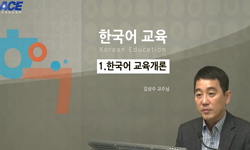The Common European Framework of Reference for Languages(CEFR) is the product of the political will for the emerging supranational organization and it`s intended to provide “a common basis for the elaboration of language syllabuses, curriculum guide...
http://chineseinput.net/에서 pinyin(병음)방식으로 중국어를 변환할 수 있습니다.
변환된 중국어를 복사하여 사용하시면 됩니다.
- 中文 을 입력하시려면 zhongwen을 입력하시고 space를누르시면됩니다.
- 北京 을 입력하시려면 beijing을 입력하시고 space를 누르시면 됩니다.

National Foreign Language Education Policies and CEFR: English as L2 and the Situation of Other Foreign Languages in Korea = National Foreign Language Education Policies and CEFR: English as L2 and the Situation of Other Foreign Languages in Korea
한글로보기https://www.riss.kr/link?id=A99870787
- 저자
- 발행기관
- 학술지명
- 권호사항
-
발행연도
2013
-
작성언어
Korean
- 주제어
-
등재정보
KCI등재
-
자료형태
학술저널
-
수록면
69-87(19쪽)
- 제공처
-
0
상세조회 -
0
다운로드
부가정보
다국어 초록 (Multilingual Abstract)
The Common European Framework of Reference for Languages(CEFR) is the product of the political will for the emerging supranational organization and it`s intended to provide “a common basis for the elaboration of language syllabuses, curriculum guidelines, examinations, textbooks, etc. across Europe” (Council of Europe, 2001). Although the CEFR has been welcomed by many foreign language educators in Europe, there has been criticism against its influence such as Fulcher`s. As we know, the CEFR is not language specific and it requires a comparable level of proficiency from language to language. However, the status of English as an international lingua franca is very strong in Korea and it`s the only foreign language(FL or L2) in Korea. In fact the Korea Institute for Curriculum and Evaluation named all other foreign languages such as French, German, Russian, Spanish, Chinese, Japanese, etc. as second foreign languages while it named English as foreign language. The widely spread concept that English speakers can communicate with the rest of the world is still dominant in Korea and the so called second foreign language education in high school level has been almost disappeared in last ten years. While the foreign language education policy makers in Korea ignore the value of the foreign languages other than English, the European language educators tend to value the achievement of the CEFR. Thus this study will analyze the Korean National Curriculum of English and other European Languages and will discuss the effectiveness of the CEFR in developing national language education policy in Korea.
동일학술지(권/호) 다른 논문
-
- 고려대학교 스페인·라틴아메리카연구소
- 우석균 ( Suk Kyun Woo )
- 2013
- KCI등재
-
- 고려대학교 스페인·라틴아메리카연구소
- 박병규 ( Byong Kyu Park )
- 2013
- KCI등재
-
- 고려대학교 스페인·라틴아메리카연구소
- 조혜진 ( Hye Jin Cho )
- 2013
- KCI등재
-
스페인어 동화현상에 관한 고찰: 스페인어 모어 화자의 동화현상이 한국어에 전이되는 경우를 중심으로
- 고려대학교 스페인·라틴아메리카연구소
- 김원필 ( Won Pil Kim )
- 2013
- KCI등재




 KISS
KISS





